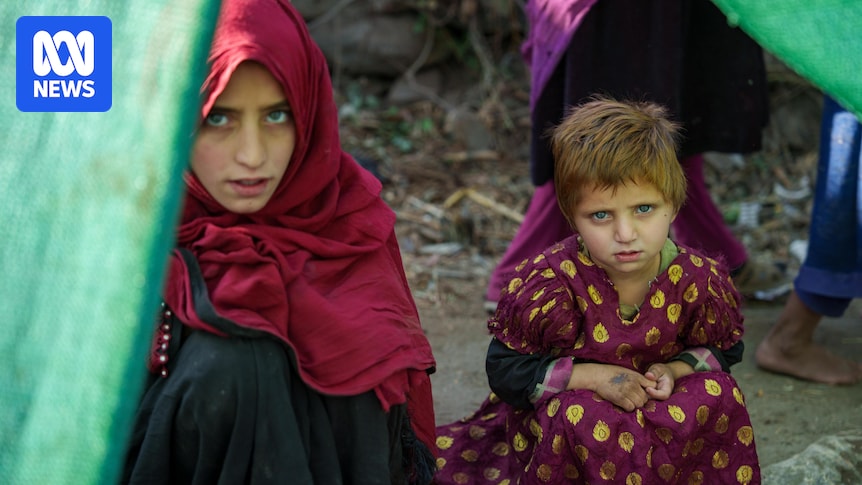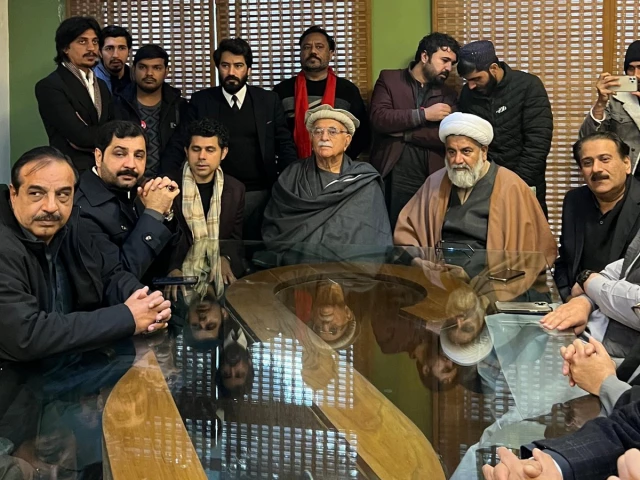- Pakistan, Indonesia to set up JTC to boost trade Dawn
- First Lady Bibi Aseefa Bhutto Zardari in a group photo after meeting with Vice Minister of Trade of Indonesia, Dyah Roro Esti Widya. Chief Minister Sindh, Syed Murad Ali Shah is also present…
Category: 1. Pakistan
-
Pakistan, Indonesia to set up JTC to boost trade – Dawn
-
Supreme Court penalises four registry officers on different charges – Dawn
- Supreme Court penalises four registry officers on different charges Dawn
- SC advances staff career progression with balanced reforms Associated Press of Pakistan
- Punitive action ordered against 4 SC officers The Express Tribune
- SC penalizes its…
Continue Reading
-
Seafood export zone planned at Karachi’s Korangi – Dawn
- Seafood export zone planned at Karachi’s Korangi Dawn
- Pakistan to set up $60–80m seafood processing zone at Korangi Fisheries Harbour Profit by Pakistan
- Modern seafood processing zone planned at Korangi harbour The Express Tribune
- Minister…
Continue Reading
-
Pakistan-US military exercise commences – Dawn
- Pakistan-US military exercise commences Dawn
- 2-week-long Pakistan, US joint military exercise commences Dawn
- Pakistan-US armies launch two-week joint counter-terrorism exercise in KP Business Recorder
- Pakistan, US launch ‘Inspired Gambit-2026’…
Continue Reading
-
Afghanistan’s Unfinished War – OpEd – Eurasia Review
- Afghanistan’s Unfinished War – OpEd Eurasia Review
- The Islamic State Khorasan Province (ISKP)-Lashkar-e-Taiba (LeT) Nexus Under Pakistan’s Patronage MEMRI | Middle East Media Research Institute
- Cross-Border Terrorism Persists Pakistan Today
Continue Reading
-

Owaisi’s ‘hijabi PM’ pitch draws sharp criticism | India News
PATNA: BJP-led NDA hit out at AIMIM chief Asaduddin Owaisi over his remarks that a hijab-clad woman would one day become Prime Minister, triggering a sharp exchange over Constitution, religion and political power Saturday, reports Jai Narain…
Continue Reading
-

CM orders timely completion of agri development projects
Work on 25 gates underway at Sukkur Barrage as CM directs replacement of all 27 gates within stipulated timeframe
…Continue Reading
-

The bombs in Afghanistan have stopped but its people now live under Taliban decrees
Four years after the Taliban’s return to power security is no longer the defining issue in Afghanistan. Instead, one of the world’s worst humanitarian crises is exacerbated by a series of overlapping disasters.
It’s a Thursday afternoon in Kabul,…
Continue Reading
-

Watched, scared and trapped in an Australian visa nightmare, Kiran is one of India’s ‘abandoned brides’ | Queensland
Kiran’s* husband was more than 10,000km away from the home she shared with her in-laws in a village in northern India. But despite the vast distance, he watched her constantly through cameras which beamed into a screen in his Brisbane home.
Continue Reading
-

TTAP warns army against political role, calls for nationwide protest on Feb 8
Says no country can function without army and intelligence, but their mandate is limited to the Constitution
Mahmood Khan Achakzai and Allama Raja Nasir Abbas Jafri received a warm welcome at the South Asian Media University by leaders of…
Continue Reading